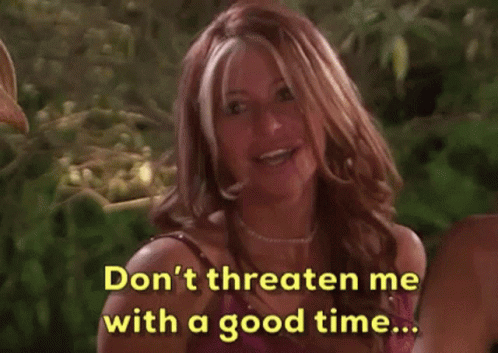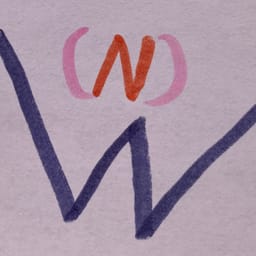Better than a sharp stick in the eye!

“Better than nothing” depends on the definition of “nothing.”
Hi (No) Wonder-ers,
We’ve all been there: we get something that’s admittedly unexciting and much less than we hoped for… but it’s better than nothing, and better than something actively harmful. It might have been a lowball offer you received for something you’re selling, a small positive-dollar-amount tax refund, or that crappy-but-free bottle of wine you had at a tasting. It’s underwhelming and not great, but innocuous and decidedly better than nothing.

Some folks will say, “Well it’s better than a poke in the eye with a sharp stick!”
One of my best friends from medical school, the ophthalmologist, will undoubtedly agree. Especially if he’s on call.
Variations might include “better than a sharp stick in the eye,” “better than a burnt stick to the eye,” or “better than a blunt stick to the eye.” Canadians might say “better than a kick in the ass with a frozen boot.” Futurama fans might say “Beats a hard kick in the face.”

My dad said “better than a tee in your ass.” For the record, he was referring to a wooden golf tee. Not that a baseball tee or football kicking tee would change the overall idea.
The idea being: something that’s not great, but it’s still better than nothing.
We, but especially women, get patriarchally conditioned to believe that being alone is the worst fate imaginable. Until very recently, single characters were almost universally portrayed as being unhappy about it. The sitting US vice-president described single women as “miserable childless cat ladies.”

“Spinster” is widely considered derogatory, despite not always having been so. In the 1300s, “spinster” originally referred to a woman who became employed and economically self-sufficient by skillfully spinning yarn and thread. But then “spinster” morphed into a pejorative, as if being a skilled and economically self-sufficient woman is somehow a bad thing. I suppose patriarchy and its adherents would see it that way, what with finances being a potential means of control.
Historically (read: in the time of woolly mammoths and stuff), being alone was tantamount to a death sentence. A single human, all alone with no group around it, was vulnerable and delicious prey for its predators. A group of humans, on the other hand, stood a better chance of staving off predators and living to fight – and procreate – another day. At that point, any partner was better than… well, a poke in the eye with a sharp stick.
To be sure, existential threats still surround us as they did back in the day. They take a different form nowadays; they no longer look like woolly mammoths and sabertooth tigers. Accordingly, singleness no longer represents the ominous death sentence it used to. Living and ultimately dying alone is no longer a worst-case scenario, despite the dedicated efforts of patriarchy-apologists* to describe it as such.
*Have you also noticed that it’s usually mediocre rizz-deficient cis men, the ones who have nothing to offer other than the false sense of urgency "you'll be alone" creates, pushing this narrative?
With the right partner(s), partnership can absolutely increase life’s enjoyment beyond what it would otherwise be remaining single. It has certainly done so for me. However, partnered life is no longer a strict necessity but an option – and a desirable one, at that. Most women report being happier single, relieved of the disproportionate emotional burdens of childcare and managing a partner’s emotional state. Given that the burden of childcare falls disproportionately on women, singleness can open up otherwise unavailable career opportunities. The Magic Wand now holds 3 hours of charge, and no one with a clitoris has any use for a fragile man who couldn’t find it with a GPS and copy of Netter’s.


Suffice it to say that singleness in 2025 isn’t what it was in 1950s. “You’ll be alone” is the threat of a good time.

Men sometimes describe dating as a “market” or competition among other men for women’s attention. Describing it this way centers men and discounts women’s agency. Involuntary celibacy and the “male loneliness epidemic” boils down to men being unable and/or unwilling to offer women a more appealing alternative to singleness. Because singleness is more feasible and appealing now than it has historically been, women are choosing it over the men who offer them less contentment than singleness does.
Who’s to say that Grandma wouldn’t have chosen singleness over Grandpa in 2025?
Furthermore, we can’t ignore that choosing the wrong partner can be much more dangerous than staying single – especially for women. Women don’t die from singleness, but they can die from choosing the wrong partner. If anything, contentment with singleness is what confers a survival advantage anymore.

TL;DR. Being single is preferable to choosing a partner poorly, and definitely beats a poke in the eye with a sharp stick. Or a 112 mph line drive to the balls.

One and Done,
Merrit



